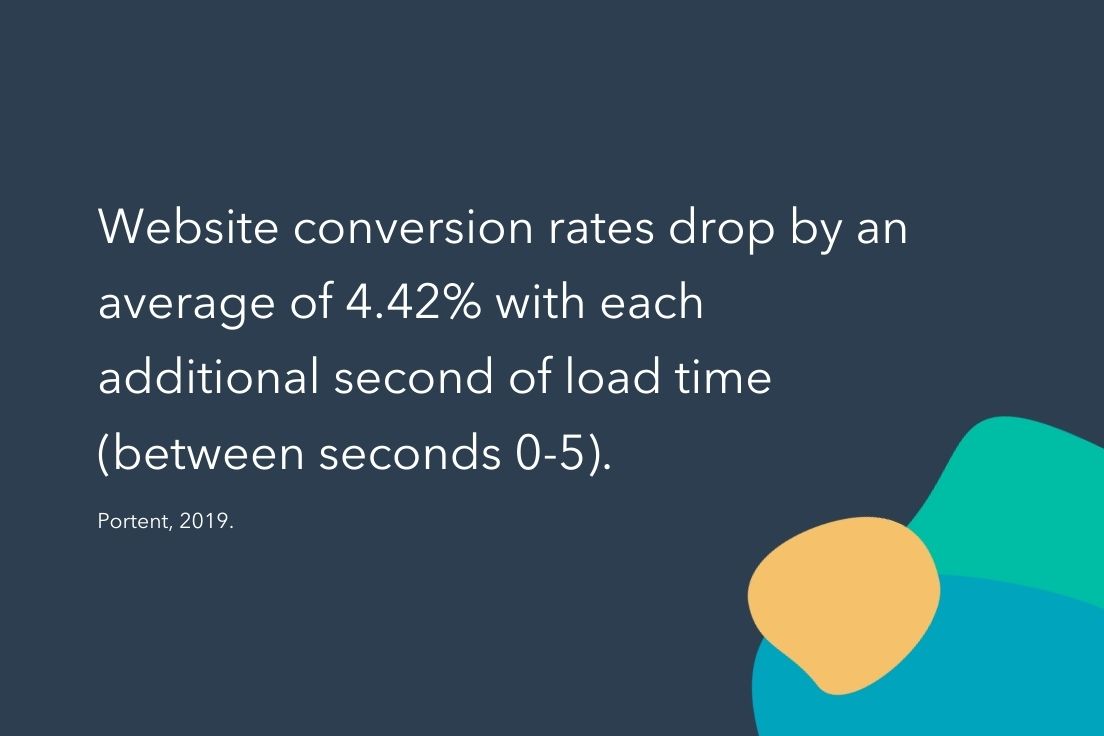Do Blogs Increase SEO Rankings in 2022?
In short, yes–blogs play a huge role in increasing your SEO rankings. This effect is based on several different factors from how often you blog to content quality, dwell time, page speed, and much more.
Fortunately, you can positively affect these factors to increase your SEO rankings via your blog including focusing on your target audience, conducting appropriate keyword research, and using visuals, hooks, and CTAs that appeal to your readers. There are also several other key tips you may want to take into consideration when optimizing your blog for SEO in 2022, so let’s dive into a better examination of each of these factors before learning a few of the many ways you can optimize your blog to increase your SEO rankings today.
Factors that Can Affect Blog SEO
Several different factors can impact your blog’s SEO rankings from how often you blog to how long it takes your posts and pages to load. Let’s look at just a few of the most notable mentions here:
Blogging Regularity
When you’re trying to get your SEO rankings boosted via your blog, you have to stay on top of regularly posting content to your site. If you don’t post often enough, Google and other search engines won’t prioritize your content, and you won’t be able to rank highly and reach a wider target audience. Focus on getting a minimum of two to four blog posts out every week to increase your web presence and improve your SEO rankings.
Content Quality
Blogging regularly and often will do you no good if you don’t put out good content. If you’re not drafting high-quality material that individuals want to read, you’ll never see the views and readership you want to have on your blog. Additionally, if you don’t add original elements and content to your blogs, it will be much harder to rank high on search engines as they–particularly Google–prioritize unique, original content to fill their top rankings.
Dwell Time
Dwell time is a term that represents how long individuals stay on your blog’s pages. The longer they stay, the more it shows Google and other search engines that your content has value to a reader. If people click in and out of your page very quickly, search engines will believe that your content is less valuable than other options and rank you accordingly.
Page Load Speed
If your page takes a long time to load, people aren’t going to stick around to see what you have to say. The first five seconds people spend on your page have a huge impact on your conversion rates. If your page boots up in less than two seconds, you’re very likely to have higher e-commerce conversion rates. But for every second that your page takes to load, you lose an average of 4.42% of conversions.

Ways to Optimize Blogs to Increase SEO Rankings
Now that you know some of the key factors that can affect your blog’s SEO rankings, let’s look at a few of the top ways you can optimize your blog for SEO moving forward.
Know Your Target Audience & Focus on Their Experience
When drafting blog content for SEO, you need to write with your audience in mind. That way, you’re able to write the content they want to read instead of merely pumping out blogs on topics you think are relevant to your industry.
By knowing who your audience is and focusing on prioritizing their experience on your site, you’re able to produce content that keeps people on your blog pages longer and keeps them coming back for more content in the long run. These work together to cue Google and other search engines that the content you produce is valued by readers, causing the engines to boost your site’s ranking.
Conduct Keyword Research
Good keyword research matters. It’s one of the most important skills bloggers can have when promoting their sites because proper keyword research and implementation help you rank higher than your competition.
If you have an established brand with lots of pre-existing domain authority, you’re able to rank with a much wider range of one-word or short phrase keywords. But if your blog is newer or if it typically ranks lower than other blogs in your industry, try using longer form, also known as long-tail, phrases and keywords as they have lower competition which increases your chance of ranking higher.
Put Keywords in the Right Spots
Once you have the right keywords for your articles picked out, you need to make sure you put them in the right places on your page. Just placing them anywhere and everywhere won’t work well because search engines look for keywords in very specific places when they’re determining which articles to feature higher up on their rankings.
Make sure you always include the keyword or phrase you’re trying to rank for in the title, meta description, and images. These places are among the very first Google scans when searching for blogs to present website searchers.
Use Interesting Visuals
Using key images or videos in your posts is another way to get the attention of a search engine. Original graphics, photos, and videos that add to the value of your post rank not only on Google’s search page as part of your blog, but also in specific image searches internet users often conduct. So, by adding these graphics to your posts, you’re introducing another way your blog can rank higher within different niche searches online.
However, to rank for the keywords you want them to, you need to be careful about adding appropriate alt text descriptions to each image you use. Otherwise, there is no way for them to rank for SEO.
More Tips for SEO Blogging
There are several other tips and tricks you can follow to increase your SEO ranking through blogging. These include:
- Use catchy headers and titles
- Have CTAs (Calls to Action) on each of your pages
- Optimize your pages for mobile devices
- Link to related blog posts by yourself and your peers
- Regularly review your metrics to stay on top of any growth potential or changes that need to be monitored
- Make sure to always update your content to stay relevant








